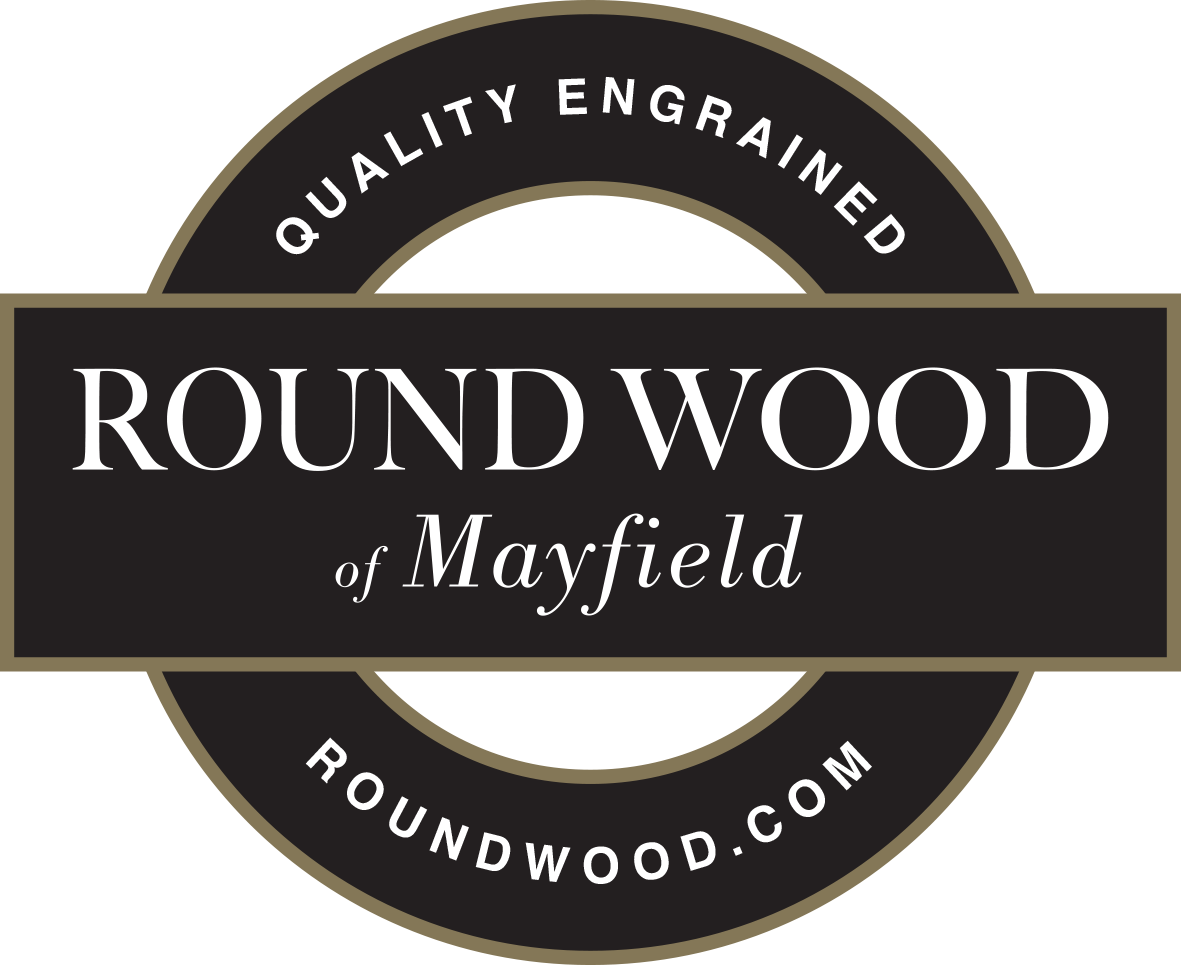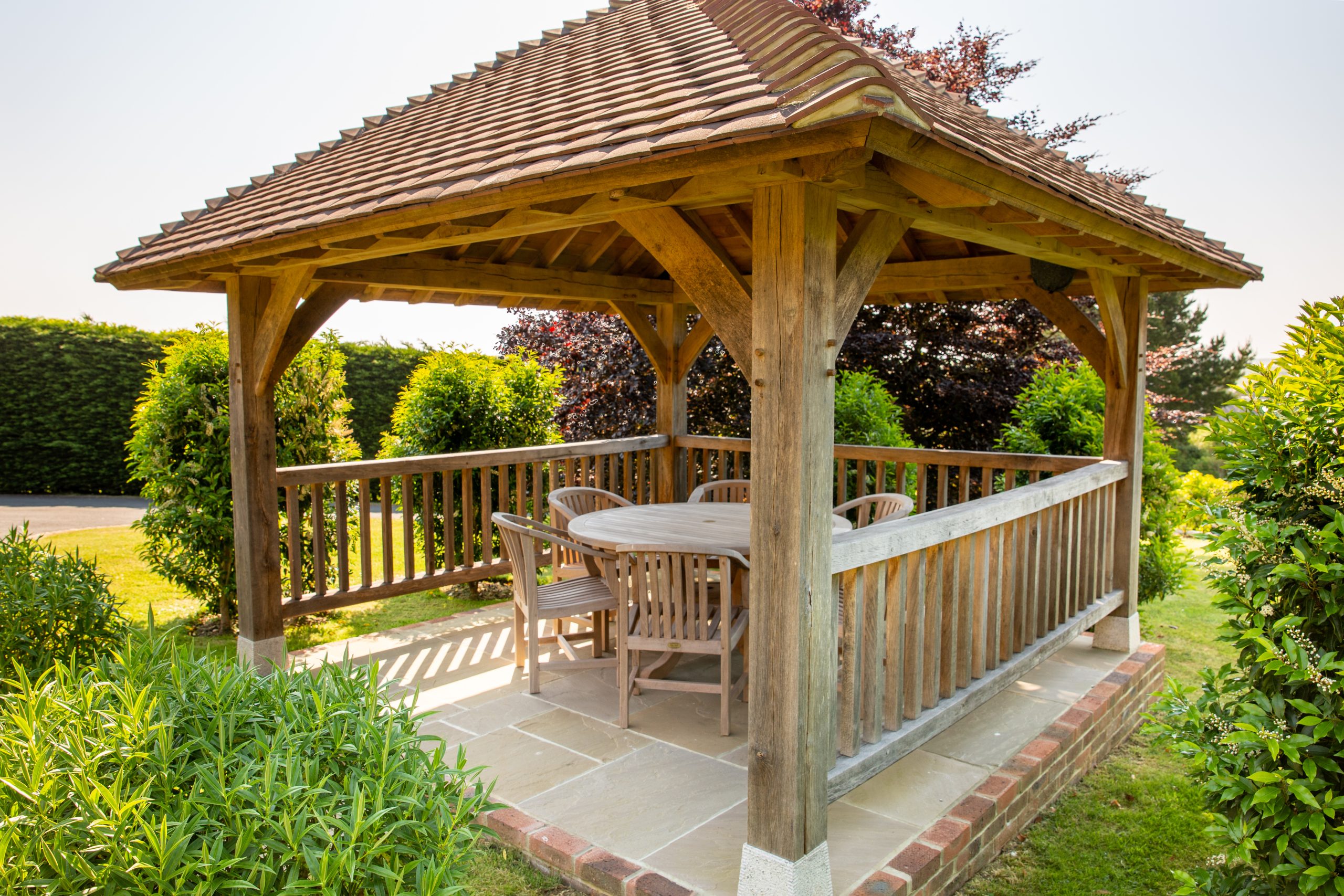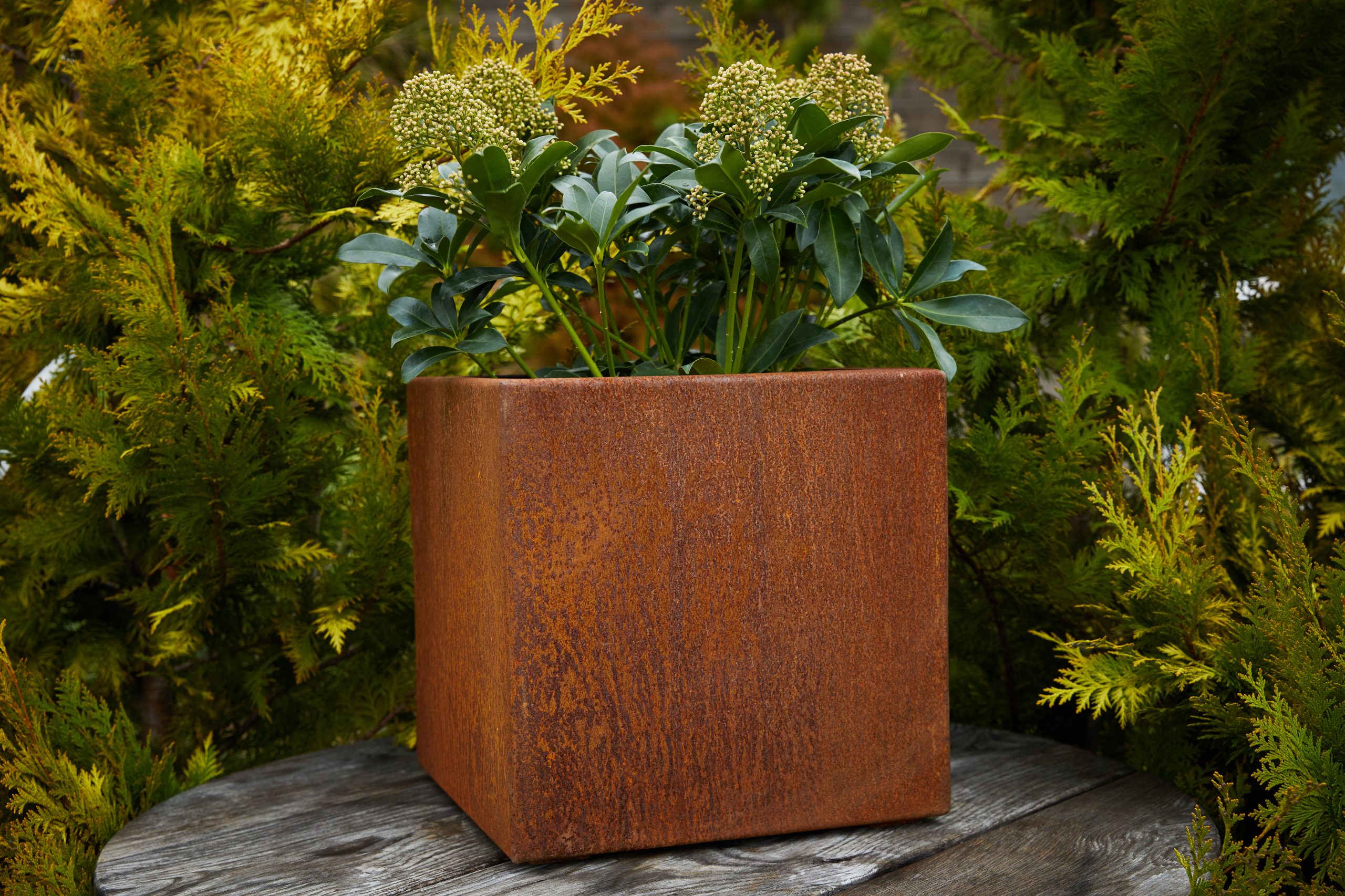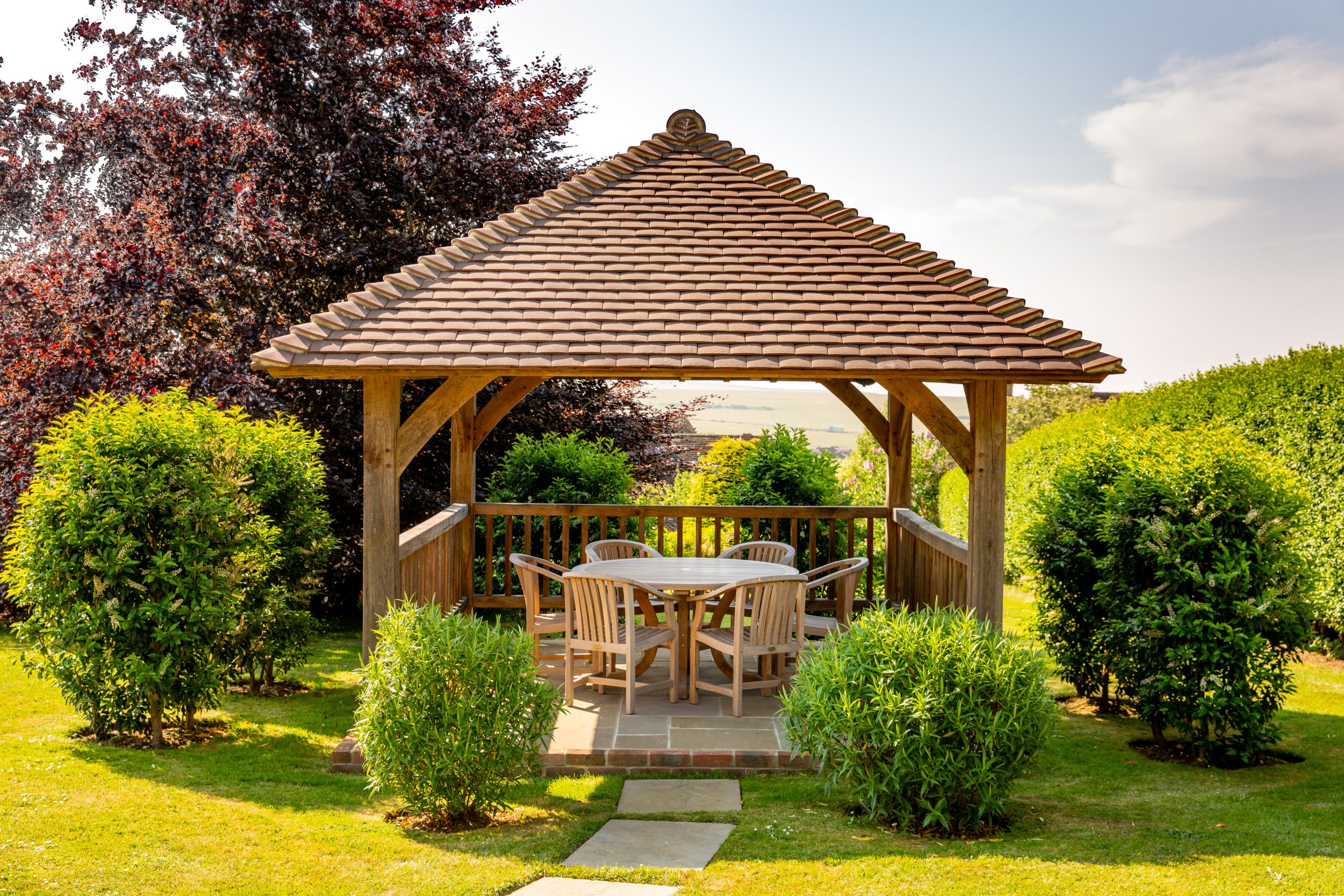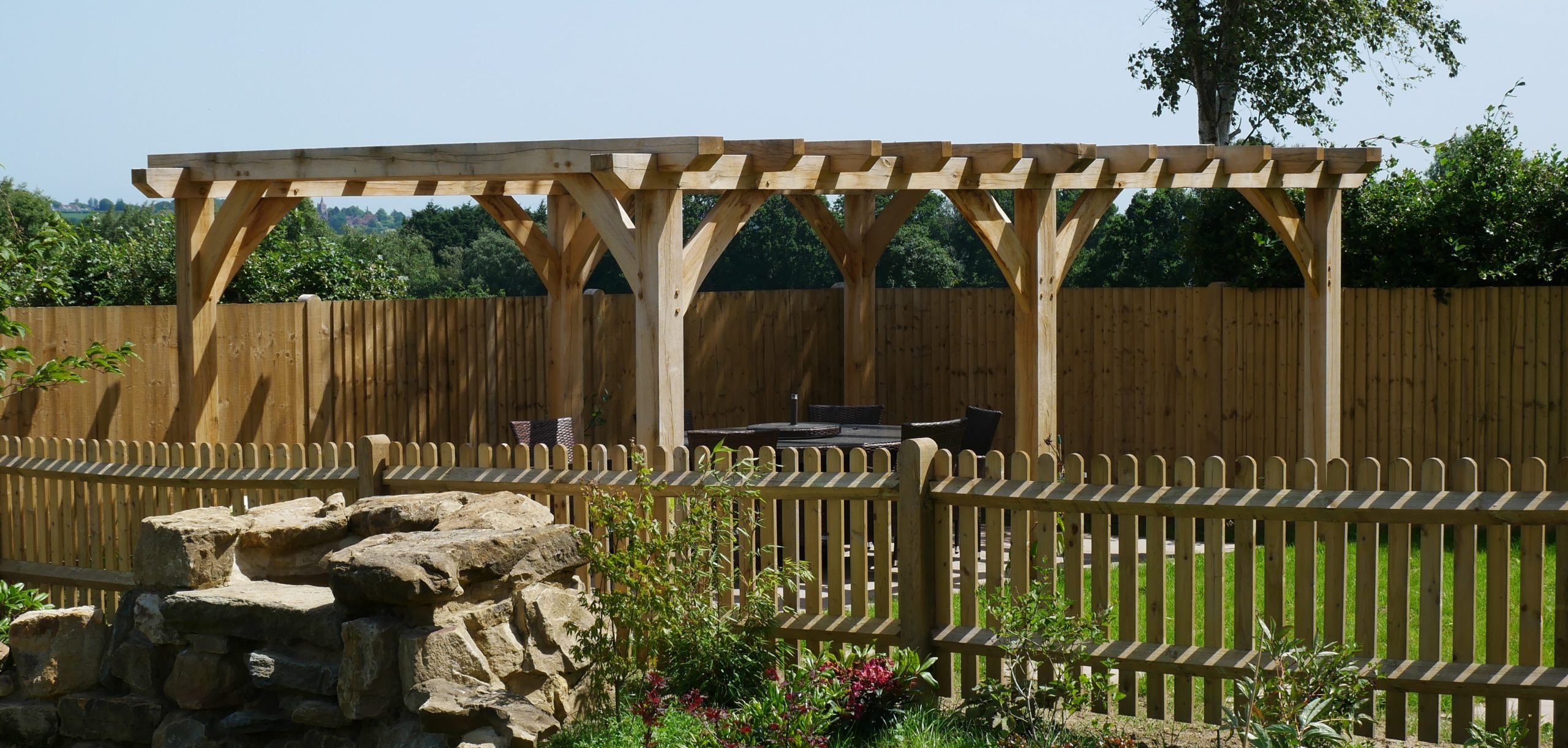Tropical Hardwood Decking – The Eco-Friendly Choice
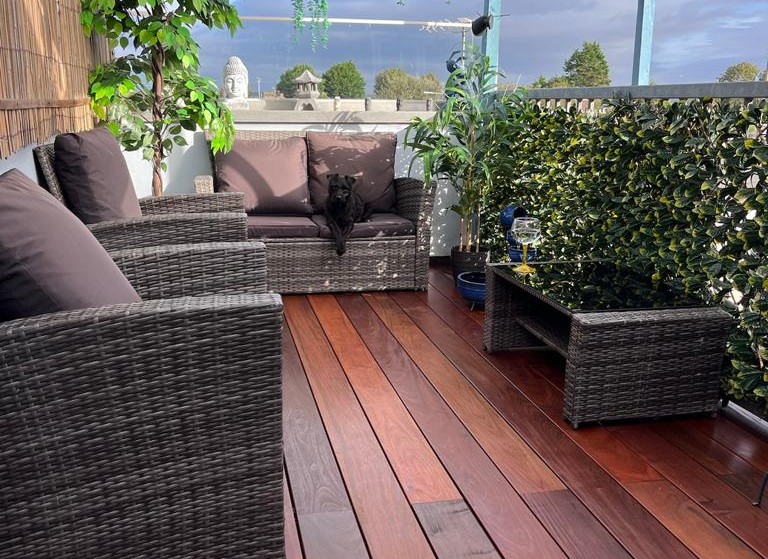
In the hunt for sustainable hardwood decking options, tropical timber is sometimes overlooked due to concerns about deforestation and resource use. In reality, when sourced responsibly, tropical hardwood decks can be an eco-friendly option that outperforms synthetic alternatives in durability and lifespan. This article explores why sustainably harvested tropical hardwood is a smart, long-lasting choice for decking and how it contributes to environmentally conscious living.
Why Choose Tropical Hardwood Decking?
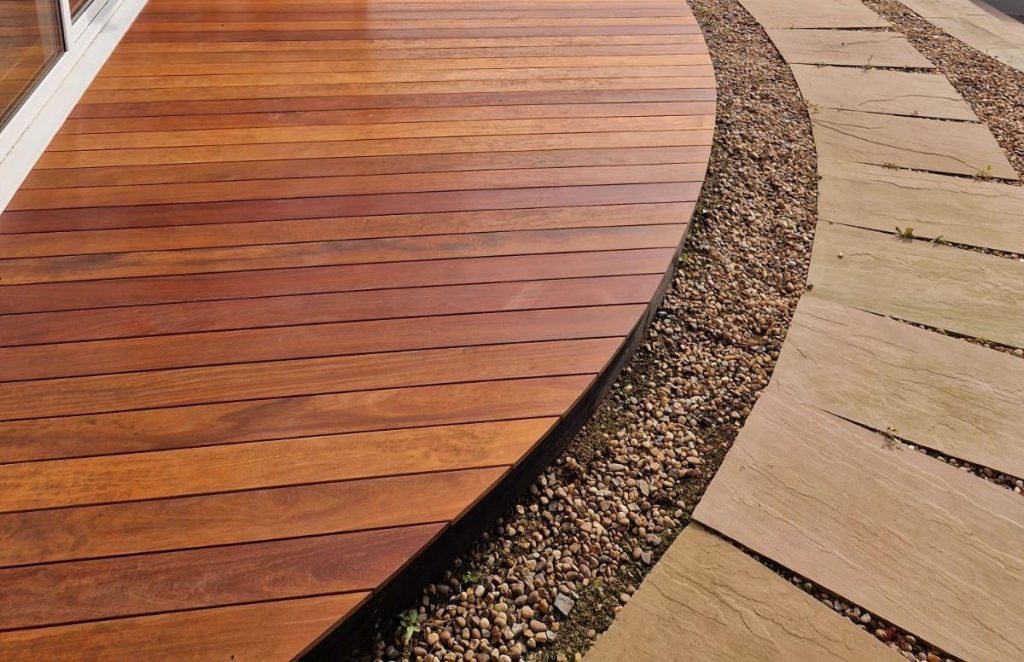
Tropical hardwood's longevity is unmatched – when properly maintained, it can last 40 to 50 years or more. Far longer than softwood and many composite alternatives. This longevity reduces the need for replacements, lowering resource consumption and waste. In contrast, softer woods often require chemical treatments to improve durability and still need replacing within a decade or two.
Its premium quality and natural beauty have made tropical hardwood a popular choice for both residential and commercial decking, offering a sophisticated look that ages gracefully, developing a silvery patina over time if left untreated. For those seeking a long-term investment, tropical hardwood combines aesthetic appeal with exceptional performance.
Common Tropical Species Used for Hardwood Decking
- Cumaru: Offers rich, golden-brown tones and a beautifully interlocked grain, making it a favourite for adding warmth and character to outdoor spaces.
- Balau: Another popular choice that features warm reddish-brown hues and exceptional durability, performing well in a range of weather conditions.
- Angelim: Known for its striking golden and reddish-brown tones with a distinctive, coarse grain that adds a bold, natural texture.
The Sustainability of Tropical Hardwood Decking
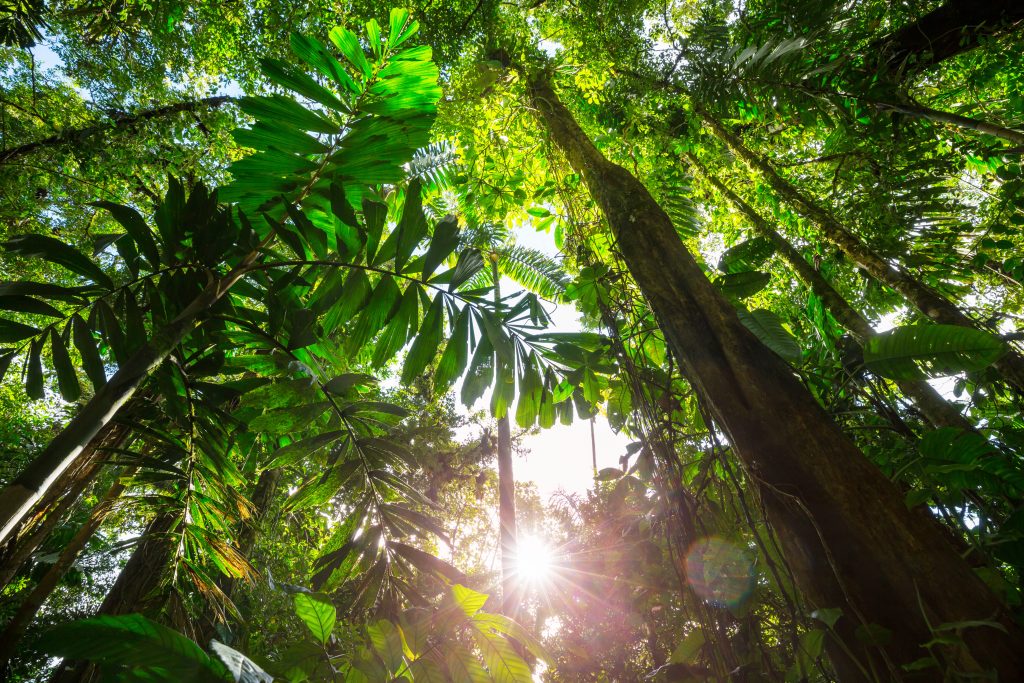
The sustainability of tropical hardwood depends largely on responsible sourcing. Certified programmes, such as those from the Forest Stewardship Council (FSC), ensure that the timber comes from well-managed forests where trees are replanted, wildlife habitats are protected, and local ecosystems are preserved.
Choosing FSC-certified hardwood decking, or that which has been sourced from a PEFC-certified mill, also helps to combat illegal logging and supports forestry practices that prioritise long-term environmental balance.
Support for Local Communities
By adhering to ethical sourcing, these programmes create jobs, promote fair working conditions, and fund community projects, fostering economic growth while conserving biodiversity. Rather than depleting resources, sustainable forestry in tropical regions can help to maintain healthy tree populations and support reforestation.
A Circular Lifecycle
Tropical hardwood is biodegradable, unlike plastic-based alternatives that will remain in landfills for centuries. When responsibly sourced, hardwood decking offers a more environmentally friendly end-of-life cycle, breaking down naturally and returning to the earth without leaving harmful residues behind.
Where Are Tropical Hardwoods Sourced?
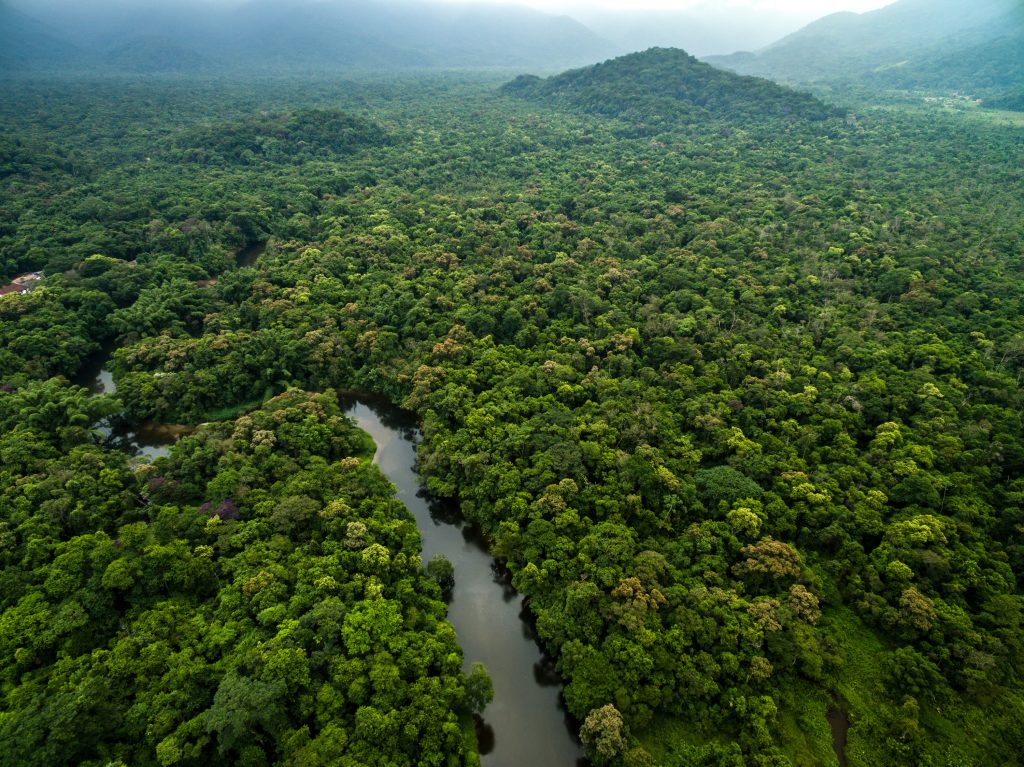
Tropical hardwoods are primarily sourced from the vast forests of South America and Southeast Asia, regions known for their diverse and dense hardwood species.
- Angelim: Angelim is also sourced from South America, particularly Brazil and parts of the Amazon basin. The vast forests here provide the ideal environment for this durable hardwood to develop its distinctive grain and natural toughness.
- Balau: This species is predominantly found in Southeast Asia, particularly in Malaysia, Indonesia, and the Philippines. Balau thrives in tropical climates and is valued for its natural resilience to moisture.
- Cumaru: Commonly harvested from the rainforests of Brazil and neighbouring South American countries. These forests are rich in slow-growing hardwoods that develop their exceptional density and durability over decades.
More Benefits of Tropical Hardwood for Sustainable Decking
Impressive Durability
Naturally dense and rich in oils, species such as Cumaru and Balau are resistant to rot, insect damage, and moisture without the need for chemical treatments. This natural resilience means that your decking can withstand the harshest conditions, from heavy rain to strong UV exposure, without warping or degrading.
Surprisingly Low-Maintenance
Tropical hardwood decking does not require regular sealing or staining to stay structurally sound. Many homeowners choose to leave their decking untreated, allowing it to develop a silver-grey patina over time. For those who prefer to retain the original rich hues, occasional oiling is sufficient to refresh the colour.
A Natural Appearance
Each board features organic grain patterns and tonal variations that create a sophisticated, high-quality finish. Unlike synthetic options, which can look uniform or artificial, tropical hardwood's character only deepens with age, making it an enduring addition to outdoor spaces.
Our Tropical Hardwood Decking Range
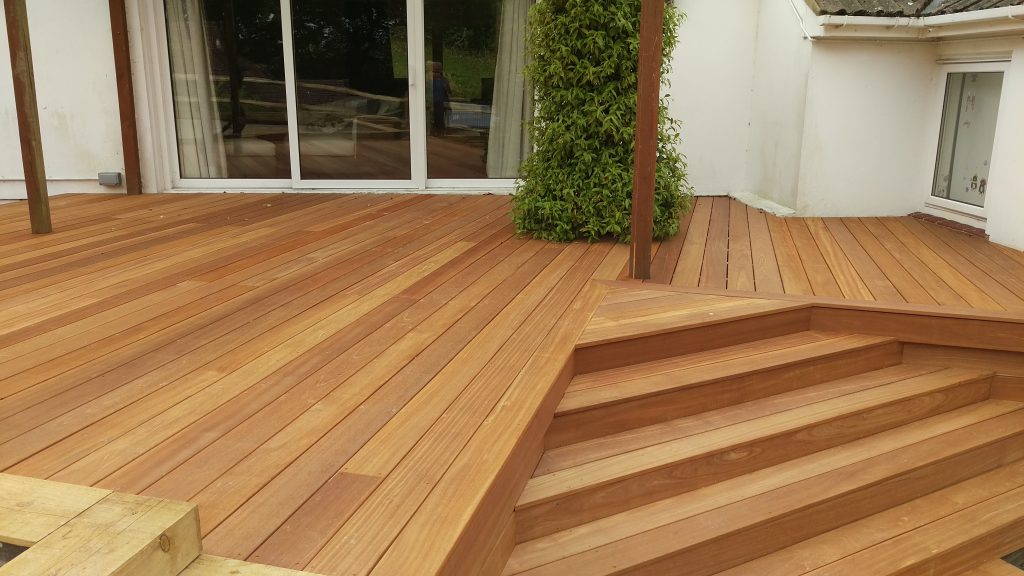
We offer a carefully curated range of premium tropical hardwood decking, selected for its exceptional durability, natural beauty, and sustainable credentials. Our commitment to responsible sourcing ensures that all hardwood products come from trusted suppliers and PEFC-certified mills that adhere to strict environmental standards.
Invest in Eco-Friendly Hardwood Decking
Sustainably sourced tropical hardwood offers an unmatched combination of durability, longevity, and natural beauty, making it a smart choice for eco-conscious decking projects. With its resilience and low-maintenance properties, it provides a long-term solution that supports sustainable living.
